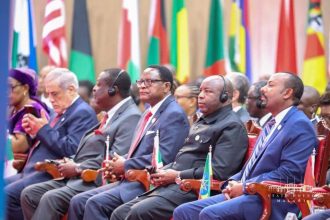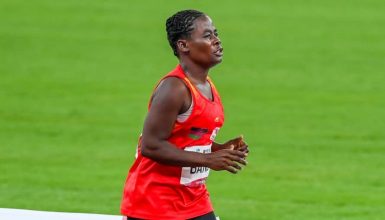Blame game on Sports Policy goals
Despite boasting of a National Sports Policy produced in 2009 to guide Ministry of Sports and Culture to transform sports into a tool of economic empowerment, very little has been achieved and stakeholders are holding government responsible for the situation.
Government targeted commercialisation of sports, strengthening supervision of revenue collection at stadiums, introduction of sports levies, rehabilitating sports infrastructure and introducing tax rebate to private sector sponsoring sports. Very little has been achieved.

Sports associations, who are key players in the policy objectives implementation, have accused government lacking political will.
Aquatic Union of Malawi president Dean Pinto said government was not walking the talk on sport policy objectives implementation.
“I think the sports policy is just gathering dust at the Ministry of Sports. There is not much that has been done on the part of government. Government funding is still very poor. There are about 34 registered associations and apart from netball and football, the other associations get as little as K1 million. How do you expect them to operate?
“Infrastructure is also a major concern. What has been done between 2009 and 2015 that we can point at in terms of infrastructure? So we have a policy that has literary not been used at all,” said Pinto.
Athletics Association of Malawi (AAM) president Godfrey Phiri said funding was the major setback for associations.
“We need more funding because we now have more programmes. We need funds for our coaches to reach out to remote areas in the districts to scout for talent,” he said.
But Phiri hailed the construction of Bingu Stadium saying it would mark a new era for athletics.
“Athletes will now experience international standard facilities at home. The use of timing machine at the new stadium will improve athletes’ performance for they will know their exact time than the manual one,” said Phiri.
Ministry of Sports and Culture spokesperson Christopher Mbukwa acknowledged challenges encountered in the implementation process.
“The implementation of the policy has faced a number of challenges including antagonism by various key partners when implementing sports activities which basically arises from unclear implementation structure of sports in the country,” he said.
Mbukwa took a swipe at sports associations for failing to play their role.
“What is happening in this country is that most of these associations don’t have strategic plans. They have no clear objectives. Worse still, even their resource mobilisation strategies are not implementable. They have not been there to mobilise resource own their own to bankroll all their activities.
“All sports associations want is more funding from government. But look, all over the world there is not much support from government in sports. Elsewhere, association are able to mobilise resources on their own and partner with the corporate world.”
He said despite such challenges a number of achievements had been made.
“One of the positives from government is that we have consistently funded the associations. But government has many priorities and we cannot fund them to the fullest.
“Considerable efforts have been seen in the area of training sports personnel through a programme that is being implemented by the Malawi National Sports Council in corroboration with University of Pretoria,” he said.
Mbukwa also said devolution of sports functions to local and city councils had increased visibility of sports at grassroots and assisted in devolving fiscal budgets to local and city councils.
He, however, said lack of resources was the major setback.
“Inadquate financial resources in the sector are one of the key bottlenecks dogging the sport in Malawi. Various initiatives by stakeholder have been made to mobilise financial resources, but have not made the sector independent of government funding. As such, most sports disciplines still depend on the government for financial support. Other key challenges such as inadequate sports infrastructure stem out of inadequate funding.
Meanwhile, the policy’s review is underway.
“Currently, the ministry and its partners are carrying out an internal review of the policy whose results are yet to be published. The activity started in September 2015 and is supported by both Government and Unicef,” said Mbukwa.





